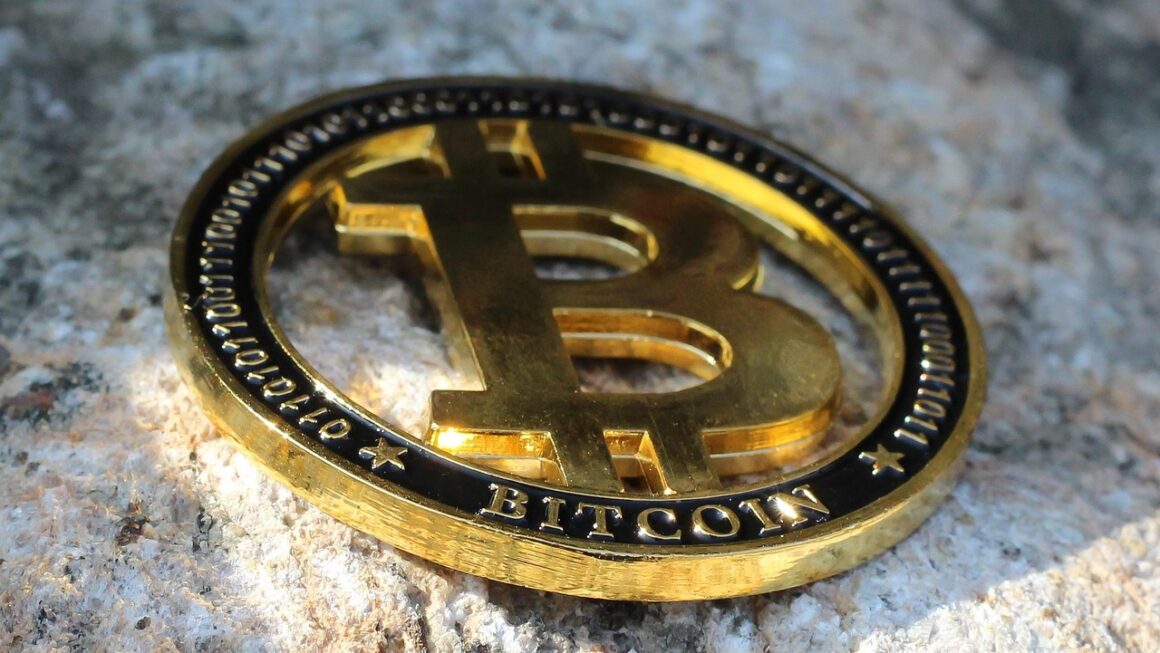Smart contracts are revolutionizing the way we do business, offering a secure, transparent, and automated way to execute agreements. Imagine a world where agreements are self-enforcing, eliminating the need for intermediaries and minimizing the risk of fraud. This is the power of smart contracts, and this blog post will explore everything you need to know about them.
Understanding Smart Contracts
What are Smart Contracts?
A smart contract is essentially a self-executing contract written in code. It’s stored on a blockchain and automatically enforces the terms of an agreement when predefined conditions are met. Think of it as a digital vending machine: you insert the required input (money), and if the conditions are met (correct amount inserted), the output (your desired snack) is automatically dispensed. No human intervention is required.
- Key Features:
Decentralized: Stored and executed on a blockchain network, making them resistant to censorship and single points of failure.
Immutable: Once deployed, a smart contract cannot be altered, ensuring that the agreement remains consistent and reliable.
Transparent: The code of a smart contract is often publicly auditable, allowing anyone to verify its functionality.
Automated: Automatically execute the terms of an agreement, reducing the need for intermediaries.
Secure: Utilize cryptography to protect data and prevent unauthorized modifications.
How Smart Contracts Work
Smart contracts operate on a blockchain, a distributed ledger technology. When a smart contract is deployed, its code is stored on every node of the blockchain network. This ensures that the contract is replicated and available to all participants.
Common Programming Languages for Smart Contracts
Several programming languages are used to develop smart contracts, each with its strengths and weaknesses. Some of the most popular include:
- Solidity: The most widely used language for developing smart contracts on the Ethereum blockchain. It’s a high-level language similar to JavaScript.
- Vyper: Another popular language for Ethereum, known for its security features and focus on simplicity.
- Rust: Increasingly popular for blockchain development, including smart contracts. It’s known for its performance, safety, and concurrency features. Used in blockchains like Solana.
- Go: Google’s language, often used for building blockchain infrastructure and smart contracts. Hyperledger Fabric uses Go.
Benefits of Using Smart Contracts
Increased Trust and Transparency
Smart contracts eliminate the need for intermediaries, fostering trust and transparency among parties. Since the contract code is publicly auditable, anyone can verify its functionality and ensure that the agreement is being followed. This transparency reduces the risk of fraud and disputes.
Enhanced Security
The immutability of smart contracts ensures that the terms of the agreement cannot be altered after deployment. This enhanced security protects against tampering and unauthorized modifications. The decentralized nature of blockchain also makes smart contracts resistant to censorship and single points of failure.
Improved Efficiency
Smart contracts automate the execution of agreements, reducing the need for manual processing and paperwork. This automation streamlines processes, saves time, and lowers transaction costs. Imagine automating escrow services, where funds are automatically released when specific conditions are met.
Reduced Costs
By eliminating intermediaries and automating processes, smart contracts can significantly reduce transaction costs. There are no legal fees, broker commissions, or other expenses associated with traditional contract execution. The cost savings can be substantial, especially for complex transactions.
Real-World Applications of Smart Contracts
Supply Chain Management
Smart contracts can track goods as they move through the supply chain, ensuring transparency and accountability. They can automatically verify the authenticity of products, monitor storage conditions, and trigger payments upon delivery. This helps to prevent fraud, reduce inefficiencies, and improve the overall supply chain process.
- Example: A smart contract can be used to track the temperature of perishable goods during transportation. If the temperature exceeds a certain threshold, the contract can automatically notify the relevant parties and trigger a price adjustment.
Real Estate Transactions
Smart contracts can streamline real estate transactions by automating the transfer of ownership and funds. They can facilitate escrow services, verify property titles, and ensure compliance with regulatory requirements. This reduces the need for intermediaries, such as lawyers and title companies, and makes the process faster and more efficient.
- Example: A smart contract can automate the transfer of property ownership once the buyer has made the full payment. The contract can also handle the distribution of funds to the seller and other relevant parties, such as real estate agents and government agencies.
Insurance Claims
Smart contracts can automate the processing of insurance claims by verifying the validity of claims and triggering payments automatically. This reduces the need for manual processing and paperwork, speeding up the claims process and lowering administrative costs.
- Example: A smart contract can be used to process flight delay insurance claims. If a flight is delayed by more than a certain amount of time, the contract can automatically verify the delay and trigger a payment to the insured party.
Decentralized Finance (DeFi)
Smart contracts are the backbone of Decentralized Finance (DeFi) applications, which aim to replicate traditional financial services without intermediaries. They are used for lending, borrowing, trading, and other financial activities.
- Example:* Decentralized exchanges (DEXs) like Uniswap use smart contracts to facilitate the trading of cryptocurrencies without the need for a centralized exchange.
Challenges and Limitations
Complexity and Technical Expertise
Developing and deploying smart contracts requires technical expertise in programming and blockchain technology. The complexity of the code can make it difficult to identify and fix bugs.
Security Risks
Smart contracts are vulnerable to security breaches, such as hacks and exploits. A single vulnerability in the code can be exploited to steal funds or manipulate the contract. It is crucial to thoroughly audit and test smart contracts before deployment.
Regulatory Uncertainty
The legal and regulatory status of smart contracts is still evolving. There is a lack of clarity on issues such as enforceability, liability, and jurisdiction.
Scalability
Blockchain networks can be slow and expensive, especially when processing a large number of transactions. This can limit the scalability of smart contract applications.
Conclusion
Smart contracts represent a significant step forward in the evolution of agreements, offering numerous benefits in terms of security, transparency, and efficiency. While challenges and limitations remain, the potential applications of smart contracts are vast and transformative. As the technology matures and regulatory frameworks evolve, smart contracts are poised to play an increasingly important role in the global economy. Embracing this technology will require continuous learning and adaptation, ensuring businesses and individuals can leverage the power of smart contracts to create a more secure and efficient future. The key takeaway is to start exploring and experimenting with smart contracts to understand their potential and identify opportunities for innovation in your field.
Read our previous article: Beyond Reality: Immersive Techs Ethical Tightrope
For more details, see Investopedia on Cryptocurrency.





One thought on “Smart Contracts: Redefining Trust Through Autonomous Code”